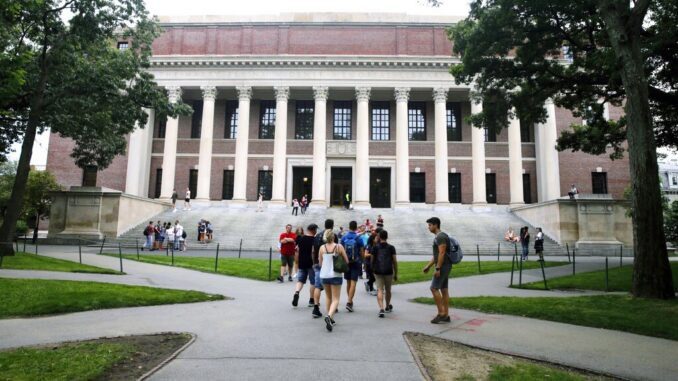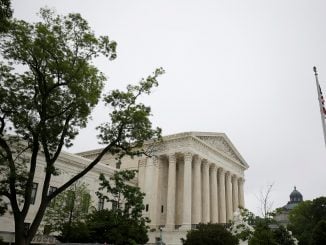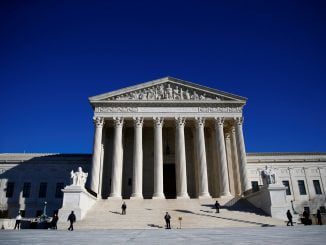
WASHINGTON, D.C. — A group claiming Harvard discriminates against Asian American applicants is asking the Supreme Court to ban the consideration of race in college admissions nationwide.
With an expanded 6-3 conservative majority since the last time the court heard an affirmative action case, the court could decide in the spring whether to take up the issue anew.
Lower courts have rejected the claims made by Students for Fair Admissions that Harvard imposed a “racial penalty” on Asian American applicants. In November, the federal appeals court in Boston ruled that Harvard looked at race in a limited way in line with Supreme Court precedents.
“It is our hope that the justices will accept this case and finally end the consideration of race and ethnicity in college admissions,” Edward Blum, the group’s president, said in a statement Thursday. Blum has worked for years to rid college admissions of racial considerations.
In the last high court go-round over college admissions, the court in 2016 upheld the University of Texas’ admissions process against a claim that it discriminated against a white applicant.
But two justices in the 2016 majority are gone from the court. Justice Anthony Kennedy retired in 2018 and Justice Ruth Bader Ginsburg died last year.
Three appointees of former President Donald Trump now sit on the court and his administration backed Blum’s case against Harvard. The Trump administration also filed its own lawsuit alleging discrimination against Asian Americans and whites at Yale.
The Biden administration already has dropped the Yale suit and almost certainly will take Harvard’s side at the Supreme Court.
The lead attorney on the appeal is William Consovoy, who also represented Trump in his bid to shield his tax returns from the Manhattan district attorney.
The Supreme Court has ruled colleges and universities may consider race in admissions decisions but has said that must be done in a narrowly tailored way to promote diversity and should be limited in time. Schools also bear the burden of showing why their consideration of race is appropriate.
Students for Fair Admissions is also suing over admissions policies at the University of North Carolina at Chapel Hill and the University of Texas at Austin.




